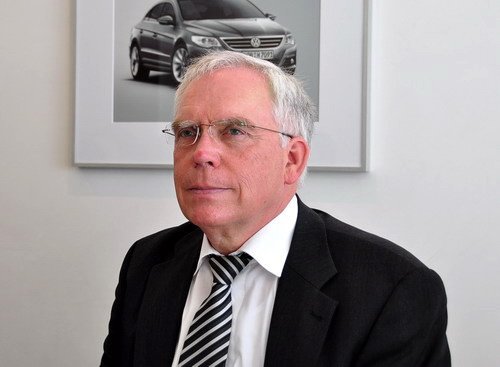Hackenberg: will direct injection technology and hybrid fusion
[CRI News 11 March] in Germany the local time on March 11, morning mass car 2010 annual press conference, public brand technology research and Development Director Mr. Hackenberg, accepted the CRI front reporters, the following is an interview:

Mass force new energy research cooperation will be expanded localization
CRI: in hybrid areas, there is no mass has been delayed, as this is what the public think?
Hackenberg: in this regard, our vision is that we are now embarking on a large scale hybrid field inside a wide variety of issues involving this part of the Chinese market, we talk to local production partners are some of the engagement. To use this kind of cooperation with local producers to address the development of hybrid cars, especially the China market.
CRI: is localization?
Hackenberg: on, our technology has a localization strategy as a whole, no matter what technology to China, and has them, including hybrid this technology. I think including, specifically for the Chinese production of cars, but also to gradually increase this part of the electric traction.
CRI: has no specific timetable or map?
Hackenberg: now under development, it is still difficult to specifically to time problems. Because now we are working with local partners are constantly engagement.
CRI: this partner means a supplier partner or partners have now been in existence?
Hackenberg: is now already existing partners as well as suppliers. Especially in the field of special inside, for example in battery technology. I can imagine a future in the mechanical aspects will also be extended with specialized technology vendors for suppliers of such cooperation. In General, we always want more technical localization, high point, of course, also suitable for the future development of electric vehicles. Want to talk to local partners from the Foundation to enhance the technological content locally.
The engine direct injection technology to hybrid
腾讯汽车: Toyota Prius has launched the third generation, faced with competition in this area, our hybrid advantage?
Hackenberg: I think, because it is a Toyota and Volkswagen focuses on markets, mass is currently focusing on the European market, European market supply is adequate for diesel, diesel technology is mature. Therefore we in diesel technology, particularly direct-injection technology is very sophisticated. Then Toyota its focus is the United States is the United States, Asia, or Asian, diesel oil supply is a problem, but the quality of diesel fuel are not very good. Therefore, Toyota in order to adapt to the market, the special needs of these markets, it began to take the so-called hybrid, reduce energy consumption. Its technology development is based on its concern focused on market needs, and now people are entering Toyota original these markets, such as the United States, or to the ASEAN countries. These countries inside the hybrid cars of the needs of larger, we follow its market demand to develop our hybrid.
Our hybrid approach with Toyota on too, we basically take parallel drivers technology, which means that we will direct injection engine and electric motor between parallel, through transmission technology advantages to make it comprehensive less energy consumption, improve its energy efficiency. In transmission technology
Surgery is our advantage. In comparison to diesel supply is adequate, clean diesel technology needs larger places, we will maintain, maintain or improve our diesel technology. But in other countries, and hybrid drive technology requires a higher place, we will follow our ideas develop with our characteristics of hybrid, to meet the needs of the market.Volkswagen has begun research on how to go beyond lithium-ion battery technology
CRI: you how understanding on the future of new automotive technology, now we compare promising lithium car. But from a global reserves, or pollution from it, it is not that special and perfect, I think the future mass is not some ideas or exploration?
Hackenberg: actually lithium batteries also have different lithium compounds, like China BYD of is lithium iron compounds, Japan's Toshiba is lithium titanium compounds, there are other lithium compounds as electrochemical material to solve the problem of motor vehicle traction, lithium compounds itself as a kind of salts, which is a class of mineral salts, its reserves and not too small, and there are many different production methods, I would like to present reserves and mining technology is mature, lithium-ion battery technology will be on in order to auto electric traction force of technological development play a considerable role. I believe that after this new materials or new materials technology. For example, as we have to address the long-term challenges of technology development, keep up to date mass of pace, has invested a specialized research future battery technology, the future of battery materials a company in the future, I believe it will produce a new similar fuel cells, new materials and new technologies.
CRI: can reveal about what is probably the one direction, or some new preliminary some direction?
Hackenberg: now mainly in electrochemical aspects with a view to finding some storage of electrical energy and release the power of integrated materials is very efficient.
Disclaimer: this article at CRI exclusive articles, copyright for all the CRI. Welcome to reprint, please indicate the source (CRI) and author, will be held liable.
